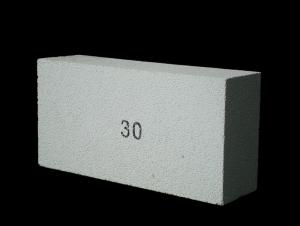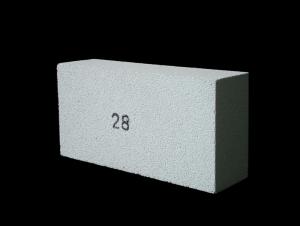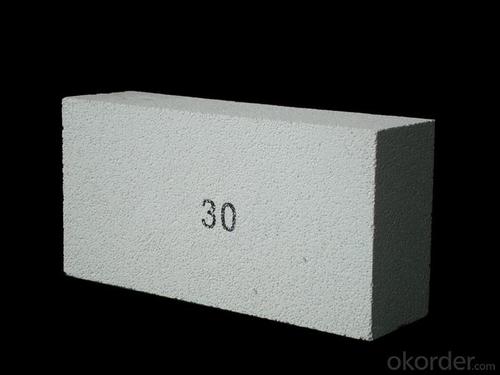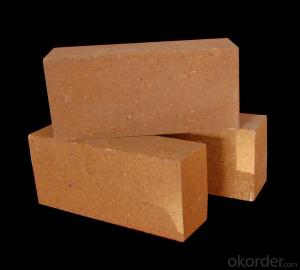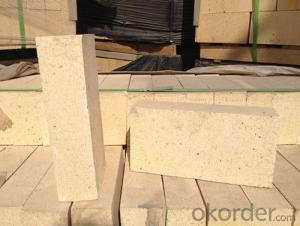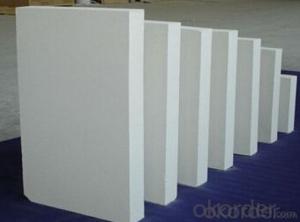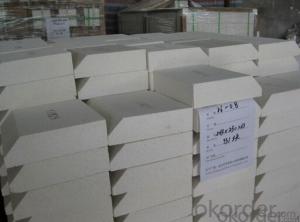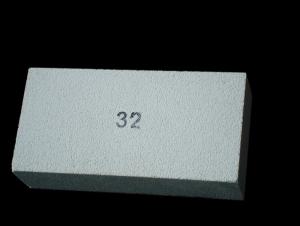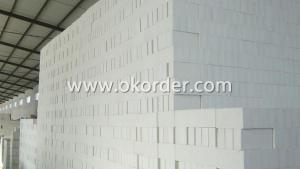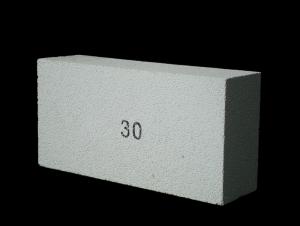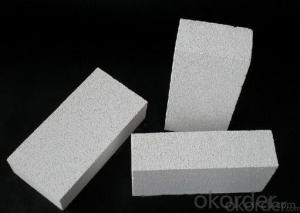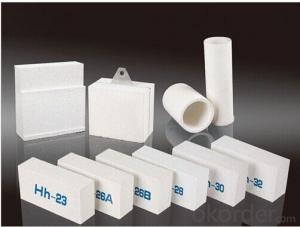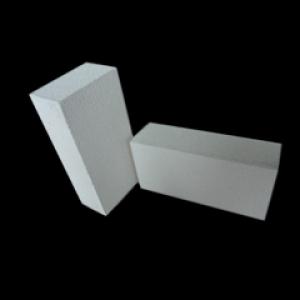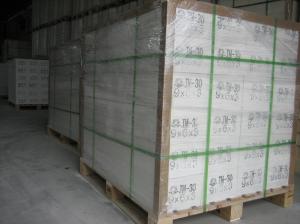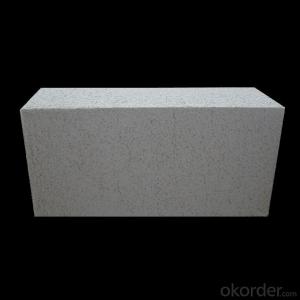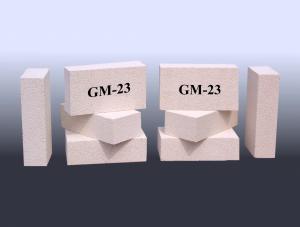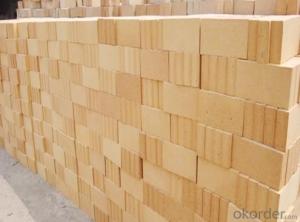Insulating Fire Brick MS28
- Loading Port:
- China Main Port
- Payment Terms:
- TT or L/C
- Min Order Qty:
- 1000 pcs pc
- Supply Capability:
- 1000 Tons Per Month pc/month
OKorder Service Pledge
OKorder Financial Service
You Might Also Like
General Information of Insulating Fire Bricks MS28
Insulating fire brick GJM28 are produced by high purity alumina and low iron raw materials.The temperature is 1540℃(2800℉). A viariety of shapes are available.
Feature of Insulating Fire Bricks MS28
Light weight and low thermal conductivity
Low heat storage
Low iron and impurities
High thermal shock resistance
Application of Insulating Fire Bricks MS28
The insulating firebricks can be used as a hot face lining directly exposed to the heat or as a backup insulation layer in iron and steel mills, non-ferrous foundries, petrochemical, ceramic, glass.
Technical Data of Insulating Fire Bricks MS28
|
| MS28 |
Physical Properties: |
|
|
Classifiction Temperature | ℃ | 1500.0 |
Density | Kg/m3 | 900.0 |
Cold Crushing Strength | Mpa | 2.5 |
Reheating Linear Change(24hrs) |
|
|
1510℃ | % | 0.6 |
Hot Load Strength Deform(90 minutes) |
|
|
1320℃ at 0.069 Mpa(10psi) | % | 0.3 |
Thermal Conductivity |
|
|
400℃ | W/m.k | 0.3 |
600℃ | W/m.k | 0.3 |
800℃ | W/m.k | 0.4 |
1000℃ | W/m.k | 0.4 |
1200℃ | W/m.k | 0.4 |
Specific Heat | KJ/Kg.K | 1.1 |
Chemical Analysis: |
|
|
Al2O3 | % | 60.0 |
SiO2 | % | 38.2 |
Fe2O3 | % | 0.6 |
TiO2 | % | 0.1 |
CaO | % | 0.1 |
MgO | % | 0.1 |
Na2O+K2O | % | 0.8 |
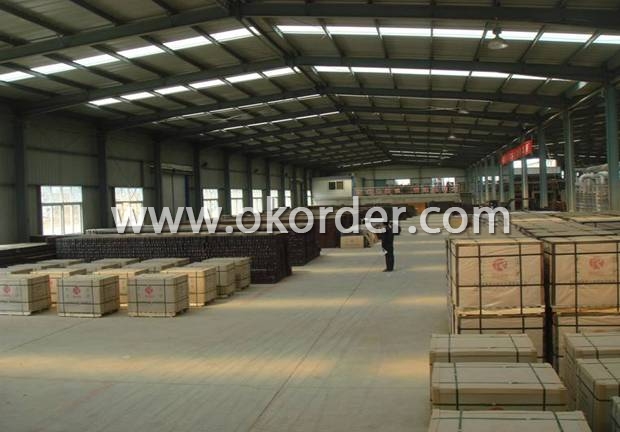
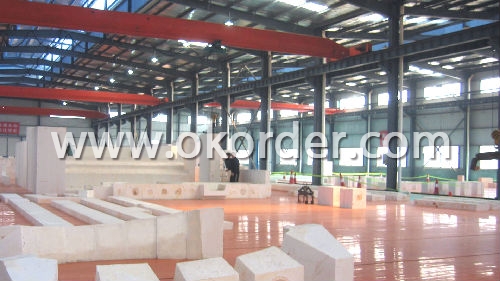
- Q: Can insulating fire bricks be used in chimney lining?
- Indeed, insulating fire bricks are a suitable option for chimney lining. These bricks are specifically engineered to endure extreme heat and offer exceptional insulation. Their ability to retain heat within the chimney prevents any loss through the walls, which ultimately enhances the efficiency of fireplaces or stoves. Moreover, their lightweight nature and straightforward installation process have contributed to their popularity in chimney lining projects. Nonetheless, it is crucial to verify that the chosen insulating fire brick meets the requirements for chimney applications and adheres to local building codes and regulations.
- Q: What are the advantages of using insulating fire bricks over other insulation materials?
- Insulating fire bricks offer several advantages over other insulation materials. Firstly, their high thermal conductivity ensures efficient heat retention, making them ideal for applications such as furnaces and kilns. Additionally, these bricks have exceptional resistance to high temperatures, enabling them to withstand extreme heat without cracking or deteriorating. Moreover, insulating fire bricks have low thermal expansion, reducing the risk of thermal stress and prolonging their lifespan. Lastly, these bricks are lightweight and easy to handle, simplifying installation and maintenance processes.
- Q: Can insulating fire bricks be used in contact with molten metal?
- Yes, insulating fire bricks can be used in contact with molten metal. Insulating fire bricks are designed to withstand high temperatures and are often used in applications involving molten metal, such as in furnaces and kilns. They have excellent thermal insulation properties and are resistant to thermal shock, making them suitable for use in these environments.
- Q: Can insulating fire bricks be used for insulation in autoclaves?
- Insulating fire bricks have the capability to be utilized for insulation within autoclaves. These bricks are specifically engineered to possess a minimal thermal conductivity, enabling them to proficiently retain heat and endure elevated temperatures. The insulation of autoclaves necessitates the ability to sustain a steady temperature and pressure, and insulating fire bricks excel in delivering exceptional insulation properties amidst these challenging circumstances. Furthermore, their robustness and durability render them well-suited for enduring the rigorous heat and pressure fluctuations commonly encountered in autoclaves. All in all, insulating fire bricks emerge as a dependable and efficient option for insulating autoclaves.
- Q: Are insulating fire bricks resistant to sulfur dioxide?
- Insulating fire bricks are generally not resistant to sulfur dioxide. Sulfur dioxide is a highly corrosive gas that can react with the materials used in insulating fire bricks, leading to their degradation and reduced effectiveness. It is important to use refractory materials specifically designed to withstand sulfur dioxide exposure if that is a requirement for the intended application.
- Q: What are the insulation materials for heating buried pipelines?
- The thickness of insulation layer should be reasonable and economical. If the insulation layer is too thin, the heat loss will be increased; the insulation layer is too thick, and the surface area of the radiator will be increased, and the heat loss will also be increased. In general the design, determine the thickness of the insulation layer according to the factors of insulation material properties, heat medium temperature, often used for 40~50 mm thickness.
- Q: What is the typical open porosity of an insulating fire brick?
- The open porosity of insulating fire bricks can vary depending on the specific type and manufacturer. On average, these bricks have an open porosity ranging from 45% to 70%, meaning that around 45% to 70% of their volume consists of interconnected voids or pores. This characteristic is crucial for their thermal insulation properties. The brick's insulating capabilities improve with higher open porosity since the voids serve as barriers to heat transfer. However, insulating fire bricks with lower open porosity tend to be denser and more durable, although their thermal insulation properties may be reduced.
- Q: Can insulating fire bricks be used in the construction of thermal insulation roofs?
- Yes, insulating fire bricks can be used in the construction of thermal insulation roofs. These bricks are designed to have high thermal resistance and low thermal conductivity, making them suitable for insulating applications. They can help reduce heat transfer and improve energy efficiency in roofs by providing effective insulation.
- Q: Can insulating fire bricks be used for pizza ovens?
- Yes, insulating fire bricks can be used for pizza ovens. Insulating fire bricks are designed to withstand high temperatures, making them a suitable choice for creating a well-insulated and efficient pizza oven. They help retain heat, allowing the oven to reach and maintain the desired temperature for baking delicious pizzas.
- Q: Can insulating fire bricks be cut or shaped to fit different spaces?
- Yes, insulating fire bricks can be cut or shaped to fit different spaces. Insulating fire bricks are made from lightweight materials that can be easily cut or shaped using common tools such as saws, knives, or rasps. This allows for customization and precise fitting in various spaces, including fireplaces, kilns, furnaces, and other high-temperature applications. It is important to remember, however, that proper safety precautions should be taken when cutting or shaping insulating fire bricks, as they may produce dust or debris.
1. Manufacturer Overview
| Location | Jiangsu, China |
| Year Established | 2008 |
| Annual Output Value | Above US$ 35 Million |
| Main Markets | Germany; Italy; Turkey; France; England; Japan; Thailand; Vietnam; Idonesia; USA |
| Company Certifications | ISO 9001:2008 |
2. Manufacturer Certificates
| a) Certification Name | |
| Range | |
| Reference | |
| Validity Period |
3. Manufacturer Capability
| a) Trade Capacity | |
| Nearest Port | Shanghai; Qingdao |
| Export Percentage | 10% |
| No.of Employees in Trade Department | 3 People |
| Language Spoken: | English; Chinese; |
| b) Factory Information | |
| Factory Size: | Twenty five thousand tons per year |
| No. of Production Lines | Above 5 |
| Contract Manufacturing | OEM Service Offered; Design Service Offered |
| Product Price Range | High; Average |
Send your message to us
Insulating Fire Brick MS28
- Loading Port:
- China Main Port
- Payment Terms:
- TT or L/C
- Min Order Qty:
- 1000 pcs pc
- Supply Capability:
- 1000 Tons Per Month pc/month
OKorder Service Pledge
OKorder Financial Service
Similar products
Hot products
Hot Searches
Related keywords
